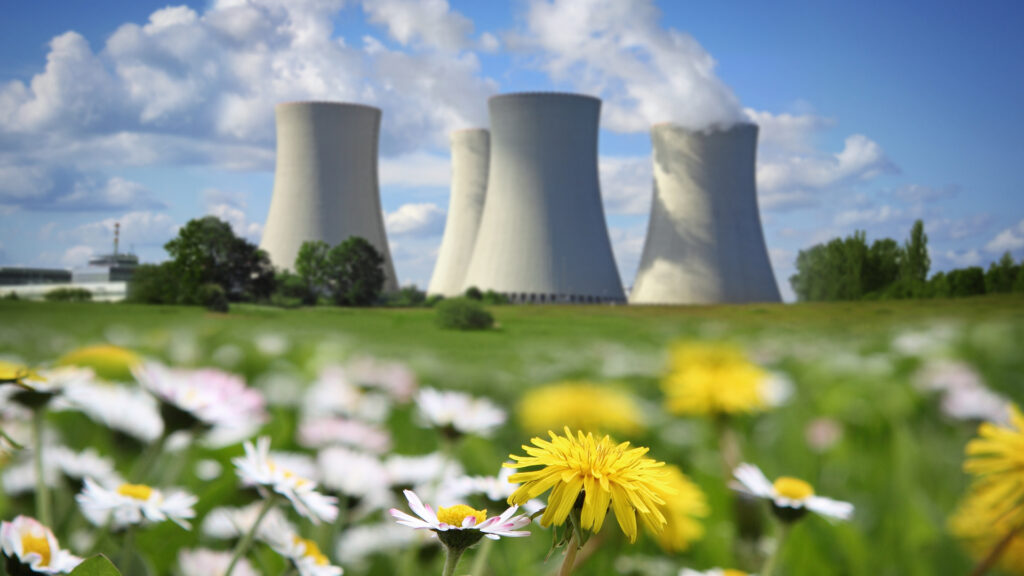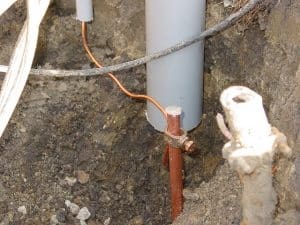
Nuclear power plays a significant role in South America’s energy industry in comparison to other regions. Some nations are considering nuclear energy as another option, influenced by various factors. Argentina’s Embalse and Brazil’s Angra are among the nuclear power stations in the region. Around 10% of Argentina’s electricity is from its nuclear reactors. Nuclear power has the capability to enhance energy security, broaden energy sources, and reduce carbon emissions. The use of this energy could offer a chance to reduce carbon in energy systems. This is because nuclear power has a low carbon footprint, helping decrease reliance on fossil fuels. This could assist the continent in achieving its climate change goals as outlined in the Paris Agreement. Moreover, high-quality grounding systems establish a pathway for faulty currents. They also provide protection from electric shock for equipment and personnel.
Grounding cables install on transmission towers and electrical equipment to create a secure pathway for fault currents. Ground rods function in the ground close to transmission towers and substations. This guarantees successful dispersion of electrical malfunctions. Grounding systems play a crucial role in guaranteeing the reliability and safety of nuclear power reactors in South America. The reliability of nuclear energy relies on grid stability, base load power, and operational efficiency. Discover the significance of nuclear energy in tackling electricity problems. Discover how nuclear power addresses power challenges and the significance of grounding systems in South America’s energy industry.
Using nuclear energy to address the electricity challenges in South America.
Nuclear power has the potential to address the electricity challenges facing South America. This is through addressing concerns about energy security and the reliability of the grid. Also, nuclear power supports environmental objectives by decreasing dependence on coal, oil, and natural gas. Therefore, it provides advantages that help in resolving energy sector challenges in the area. This establishes nuclear power as a key component of South America’s energy prospects. Grounding systems in nuclear power plants improve safety, safeguard equipment, and ensure a reliable electrical supply. Here are some ways in which nuclear power can address electricity issues in South America.

- Nuclear energy decreases reliance on imported fossil fuels, enhancing energy security and independence. For example, Argentina and Brazil can lessen their dependence on imported fuels and boost energy autonomy.
- South America is aiming to decrease carbon footprints by setting ambitious climate goals to achieve low carbon emissions. Nuclear energy is crucial in combating climate change as it does not emit any greenhouse gases while operating. Additionally, it supplements renewable energy by offering a consistent supply of electricity when solar and wind energy generation is low.
- The energy mix in South America needs to be diversified as countries currently rely on hydroelectric power, leaving them vulnerable to droughts and seasonal fluctuations. Nuclear power offers a reliable and consistent electricity supply. This enables these nations to diversify risk among various energy sources and lessen dependence on a sole source.
- Investing in nuclear technologies enables flexibility, safety enhancements, and potential for increased scalability through technological innovation. Small modular reactors being developed in Argentina are more cost-effective than traditional large-scale reactors. Modern technologies have enhanced safety features to cut the chance of accidents.
The environmental impacts of nuclear power plants and the importance of grounding systems.
The effects of nuclear power facilities can be positive or negative, depending on their operation. Nuclear power helps reduce carbon emissions and offers dependable energy. Nevertheless, nuclear power plants face many challenges such as radioactive waste, thermal pollution, and the risk of accidents. Grounding systems in nuclear power plants cut the risks linked to electrical breakdowns. Environmental challenges include nuclear waste, thermal pollution, water use, radioactive contamination hazards, and land use. Listed below are the functions of grounding systems in minimizing risks to the environment and safety.

- Avoiding electrical malfunctions and machinery harm – the systems effectively release surplus electrical energy into the ground. This aids in avoiding electrical fires, malfunctions, or power interruptions.
- Grounding systems aid in preventing electrical accidents that may result in equipment failure, thus avoiding environmental contamination. Excessive heat in the reactor core may result in radioactive materials escaping into the surroundings.
- Ensuring the wellbeing of humans and animals – a well-engineered grounding system lowers the likelihood of electrical mishaps. They make sure that stray currents do not cause hazardous situations that may result in plant malfunctions.